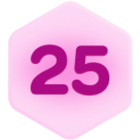Hey Everyone,
As an active member of the no-code community, we at Softr always closely follow the developments within the no-code movement. Therefore, we’ve started a series of articles on no-code to share our thoughts and observations on different aspects of the no-code universe.
The first one explores the evolution of no-code, its current developments, and future perspectives: The Past, Present, and Future of No-Code
Let me know if it’s helpful and if you’d be interested in reading more similar content.
Cheers,
Narek


